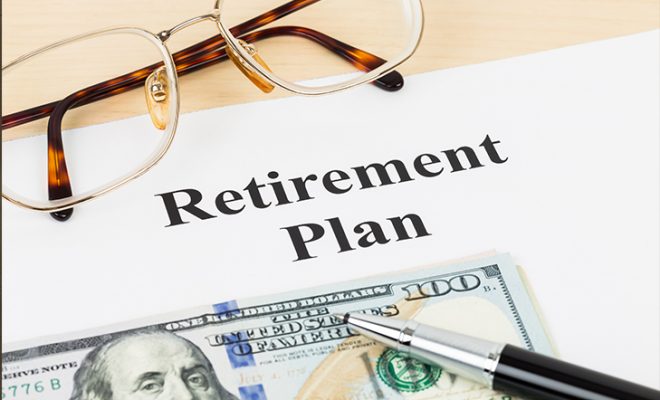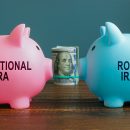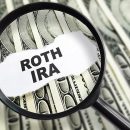7 Best Retirement Plans in 2021

Retirement planning refers to saving and investing your money to ensure a steady stream of money in your retirement. Your retirement can last many years, and hence, it is crucial to plan well in advance and accumulate enough funds that can cover your routine expenses, emergency needs, medical bills, travel costs, etc. Retirement planning is not limited to just saving and investing. It also involves tax planning, estate planning, etc., to ensure that your retirement plan is all-inclusive. A retirement plan includes a variety of savings tools such as IRAs, 401ks, stocks, mutual funds, and other investments to provide financial stability to folks when they retire from their full-time jobs.
To ensure that you draft a comprehensive retirement plan, you must understand the options available to you. There are several types of retirement plans that you can choose from for your retirement investments. You can choose a plan based on your present and future needs, the taxability of the account, the withdrawal rules and penalties for each option, the contribution limits for all plans, the employer contribution match, the risk and return, the investment horizon, etc. Since everyone’s needs can differ, it is important to evaluate each of these parameters and then pick a suitable plan. In addition to this, you must also select an option that can offer inflation-beating returns, safety, flexibility, and transparency. State and federal taxes can also reduce your retirement funds. So, if you know where you are likely to settle after retirement, you may compare the potential returns of different states while making your decision.
Here’s a list of the seven best retirement plans in 2021 that you can add to your portfolio:
- Traditional 401(k) retirement plan: Most people are well acquainted with a traditional 401(k) retirement plan. The traditional 401(k) is an employer-sponsored plan that was first introduced in 1978. The biggest benefit of investing in a 401(k) is that your employer matches your contribution. So, in a way, you get free money that accumulates over time and earns interest. Note that not all employers match your contribution, but most do so to improve their employee’s productivity, satisfaction, and performance. So, even if your current employer does not match your contribution, you may consider switching jobs and find one who does. A lot of people also negotiate matching contributions before they accept a job offer.The traditional 401(k) is a qualified retirement plan, which means it enjoys special tax benefits from the Internal Revenue Services (IRS). This implies that a 401(k) account lets you invest pre-tax dollars and grow money tax-free. Withdrawals are taxed when you take out the money in retirement. However, since most people anticipate a lower tax bracket in retirement, they end up saving a lot of money in the long run. The maturity date for a 401(k) account is 59 ½ years. If you withdraw money before the maturity date, you have to pay a 10% penalty to the IRS. You may withdraw money without incurring a penalty in certain situations:
- In case of death or disability
- If you terminate the plan
- If you retire or leave your job
The IRS also sets contribution limits for 401(k)s every year. For 2021, it is $19,500 with an additional catch-up contribution of $6,500 for people aged 50 or older, bringing it to a total of $26,000.
- Roth 401(k) Plans: The Roth 401(k) plan is similar to the traditional 401(k) with a minor difference in its taxability. Unlike the traditional 401(k), your contributions are taxed in a Roth 401(k), and your withdrawals are given to you tax-free. So, if you foresee a larger tax bracket in your retirement and prefer to pay taxes now, you can opt for this option. Other than this, a Roth 401(k) offers the same benefits. The contribution limits and withdrawal rules are also the same. Just like the traditional 401(k) account, the Roth 401(k) also invests in mutual funds, index funds, real estate funds, large-cap and small-cap funds, etc.
- Individual Retirement Accounts (IRAs): IRAs are one of the best retirement plans for you if your workplace does not offer a retirement account. You can open an IRA with a bank or a broker and enjoy similar benefits as the 401(k) account. However, since there is no employer involved here, you are the only contributor to the account. An IRA offers a larger investment selection than a 401(k), so you have better prospects of earning more returns. These can include stocks, bonds, exchange-traded funds (ETFs), certificates of deposit (CDs), etc. Moreover, you can make all decisions when investing in an IRA and do not have to worry about the account if you switch jobs. The contributions are made with your pre-tax dollars and taxed in retirement as per the prevailing income tax rates. But the contributions are a lot lower than a 401(k). As of 2021, the IRS has fixed a contribution limit of $6,000 for people under the age of 50 and $7,000 for people over the age of 50. The maturity age is fixed at 59 ½ years, and unqualified withdrawals before this age trigger a penalty of 10% on the amount withdrawn.However, you may withdraw for qualified expenses listed below:
- In case of death or disability
- If you purchase or rebuild a first home for yourself or a qualified family member
- If you need to cover higher-education expenses of a child
- If you need to cover the expenses of having or adopting a child
- If you need to cover unreimbursed medical expenses
- If you need to pay for medical insurance after losing your job
- If you have been called for military duty for more than 179 days
- Roth Individual Retirement Accounts (IRAs): A Roth IRA offers the same benefits as a traditional IRA. However, instead of paying tax on your withdrawals, you pay tax on your contributions. The withdrawals are completely tax-free. So, you can evaluate your taxability now versus in retirement and make a decision accordingly. If you find it hard to calculate this yourself, you can take help from a financial advisor.
An important thing to remember is that even though IRAs are primarily retirement accounts, a lot of people also use them to cover the higher education expenses of their children. So, if your other retirement strategies and investments offer adequate returns for your financial needs, you can always use your IRA for other needs. - Traditional pension plans: Traditional pension plans are another employer-sponsored option for retirement savings. They are one of the oldest and best retirement plans that can offer you a steady income in retirement. While these plans may not be as popular today as they once were, they are still great for laborers and public service employees.
Traditional pension plans offer you an annuity after retirement for a fixed period. The contributions can be made by the employee and the employer, so it helps to discuss what options you have with your employer. There are two types of pension plans:- Defined benefit plans: In these plans, the pension is calculated as per the employee’s salary and the number of years spent working with the concerned organization. The company offers a guaranteed pension to the employee, and the employer contributes to the plan along with the employee. A good example of a defined benefit plan is Social Security.
- Defined contribution plans: Defined contribution plans work in the same manner as a defined benefit plan, but they do not guarantee a pension. The contributions made to a defined contribution plan are invested further, and the pension payouts largely depend on the returns earned by the investment. So, while the defined benefit plan will offer a guaranteed amount calculated as per the income and number of years spent at a company, the defined contribution plan will offer a pension depending on the returns earned.
- Federal thrift savings plan: The federal thrift savings plan is offered to employees of the federal government. Uniformed services personnel can also use this retirement planning account. Similar to an IRA and a 401(k) retirement account, a federal thrift savings plan also offers two options: a traditional and a Roth variant. The traditional option lets you make tax-deferred contributions and pay tax in retirement. On the other hand, the Roth option allows after-tax contributions and levies tax on withdrawals made in retirement. Federal thrift savings plans invest in varied options like a fixed-income index investment fund, government securities investment fund, common-stock index investment fund, international-stock index investment fund, small-capitalization stock index investment fund, etc. Moreover, if you worked in the private sector and have switched jobs to become a federal government employee, you can switch your 401(k) account and IRA to a federal thrift savings plan. Similarly, if you worked with the federal government and later wish to move to the private sector, you can transfer your funds to a 401(k) account or IRA.
Since the federal thrift savings plan is a workplace retirement plan, the employer also contributes to the plan. Employer contributions in the plan amount to 5% of the employee contribution. This is broken down into 3% of dollar to dollar match, 2% include a 50% match of the employee contribution, and a 1% non-elective contribution. - Life insurance plans: An insured retirement plan can offer twin benefits – they let you save for your retirement, and they can secure the future of your loved ones in your absence. An insured retirement plan is one of the most essential tools that you can use to ensure financial security in adverse situations. Life insurance plans are of different types, such as whole life insurance, term life insurance, etc., and the right option for you would depend on your needs and your family’s future requirements. Such plans allow your money to grow over time, and the accumulated funds are paid to you on maturity. If you prefer low risk and want a guaranteed payout at retirement, a life insurance plan can be an excellent option. The risk involved will be minimal, your family will be protected in an unfortunate situation, and your money will grow tax-deferred over the years. A life insurance plan can also be helpful if you have maxed out all other retirement-saving options.
What is the best retirement plan for you?
Everyone’s retirement strategies are different, so it can be hard to find a solution that fits all profiles. To determine the best retirement plans for you, you must analyze your future goals, present income, family members and their needs, your personal and professional dreams, medical history, and present health and then ascertain a retirement fund amount. Once you have a tentative figure in mind, you can get in touch with a financial advisor and pick a plan that will be ideal for your needs.
It is important to understand that every retirement plan has a unique purpose, and this purpose should align with your goals. It never helps to simply go for the popular option based on what your peers are doing. Instead, it is more beneficial to assess your own needs and select a plan that you are comfortable with. For instance, some people are willing to take more risks while others like to stick to safer options. Similarly, some people may be saving for retirement for themselves alone, while others may have dependent or medically incapacitated children to look after even after retirement. These factors influence your decision greatly. So, make sure to study the pros and cons of each retirement plan and then choose a method accordingly.
To conclude
Now that you know of the types of retirement plans available to you, make sure to start retirement planning from an early age. The sooner you start saving or investing, the more you can earn over time. The power of compounding lets you beat inflation, tackle risk, and evade volatility. You should also try to control your debt and limit your expenses to be able to contribute more to your retirement accounts. Moreover, aim to contribute up to the maximum limit allowed for each retirement account. This will help you build a bigger corpus. Additionally, make a budget to ensure that you stay on track and do not deviate from your original goal. And lastly, it helps to revisit your goals and retirement plan from time to time to ensure you are heading down the right path. If not, make changes and set new goals often. You also use a retirement calculator to measure your progress and preparedness.
Retirement planning is not all that tough as long as you stay committed to your goals. But if you face any challenges, you can always reach out to a professional financial advisor for better recommendations and advice.
To know more about the best retirement plans for your financial requirements, visit Dash Investments or email me directly at dash@dashinvestments.com.
About Dash Investments
Dash Investments is privately owned by Jonathan Dash and is an independent investment advisory firm, managing private client accounts for individuals and families across America. As a Registered Investment Advisor (RIA) firm with the SEC, they are fiduciaries who put clients’ interests ahead of everything else.
Dash Investments offers a full range of investment advisory and financial services, which are tailored to each client’s unique needs providing institutional-caliber money management services that are based upon a solid, proven research approach. In addition, each client receives comprehensive financial planning to ensure they are moving toward their financial goals.
CEO & Chief Investment Officer Jonathan Dash has been profiled by The Wall Street Journal, Barron’s, and CNBC as a leader in the investment industry with a track record of creating value for his firm’s clients.










